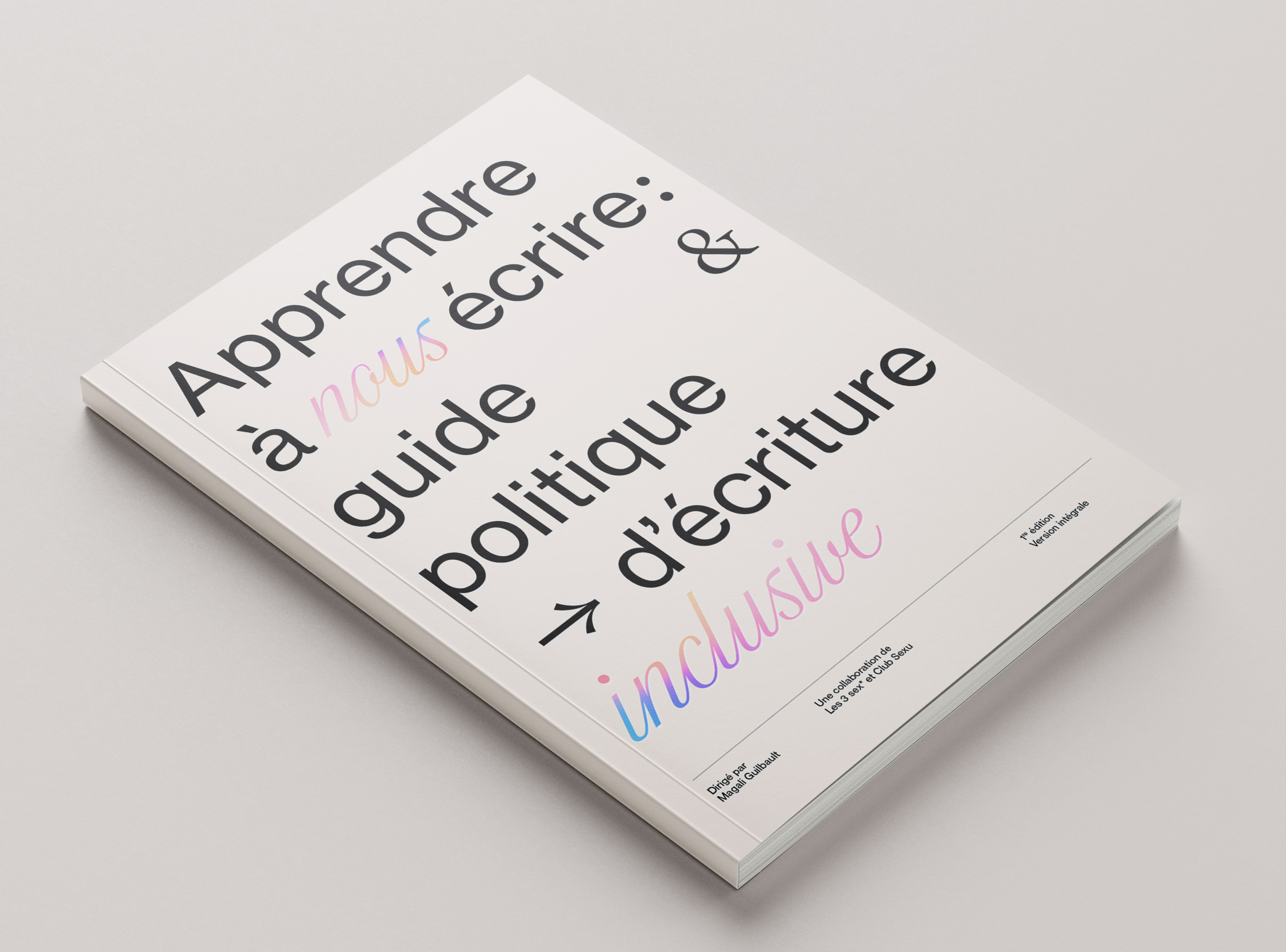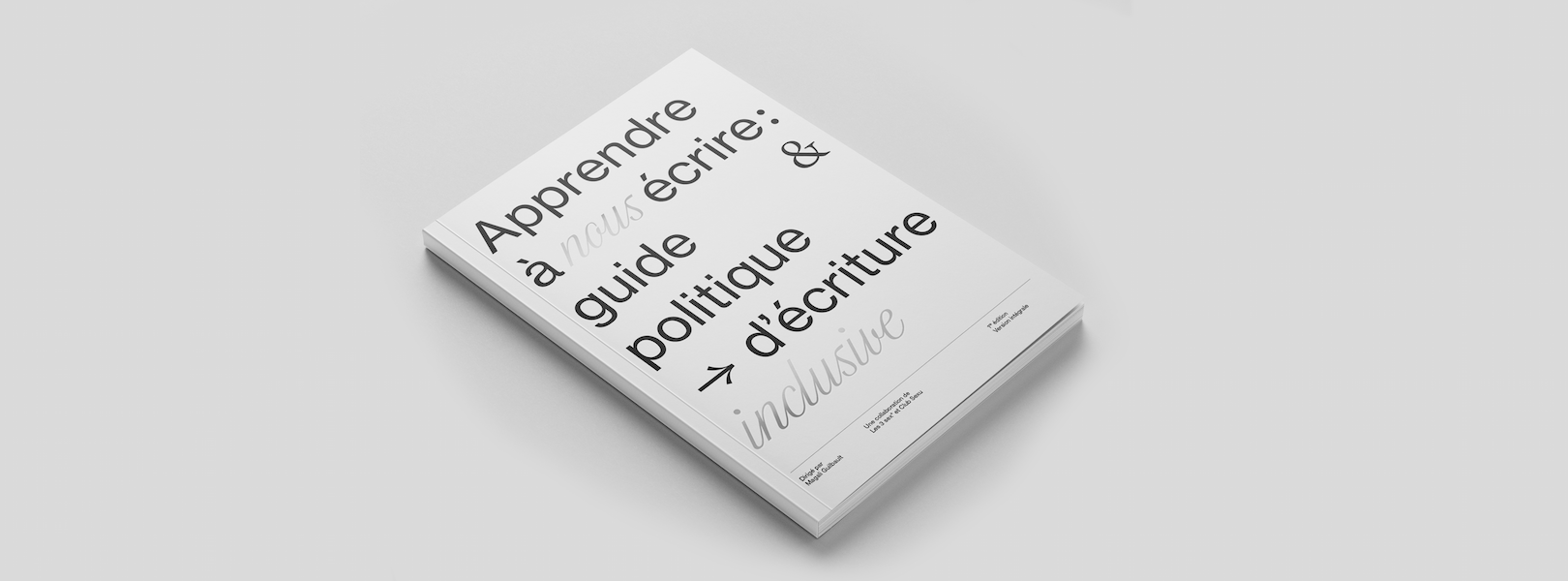Epicene communication? Gender-neutral writing? Inclusive writing? What do these terms refer to? How do they differ from the feminization of titles and functions, common in recent decades? This project clarifies the practice of inclusive writing, its different practices as well as its social, linguistic, political, and discriminatory issues (of gender, ableism, classism).
The project promotes the demasculinization of language and the non-essentialization of gender, which involves an ever-evolving reflection on the use of language as a vehicle for gender identity as well as a feminist and intersectional awareness of gender inequalities that are reflected in the expression of language. It is the joint work of Les 3 sex* and Club Sexu, two feminist organizations committed to the fight for sexual rights.
Its design comes mainly from the work of our linguistic consultant Magali Guilbault Fitzbay.
Inclusive Writing Guide (French only)

Sales management of the complete guide is handled by our partner Club Sexu. You will therefore be redirected to the Club Sexu web page. The complete guide Apprendre à nous écrire : guide et politique d'écriture inclusive is 100 pages long.
> Buy the complete guide (38.00$)
Are you subscribed to Les 3 sex*? You are entitled to a 15% discount. You should have received a promo code by email. If not, please email us. Do you want to sign up and support the mission of Les 3 sex*?
Non-for-profit organizations have free access to the short version of the guide and can get a discount when purchasing the complete guide. Email us to find out more!
Inclusive Writing Training (French only)
The training on inclusive writing complements the guide signed and edited by Les 3 sex* and Club Sexu. Epicene writing, gender-neutral language, non-gendered communication: this training attempts to demystify what inclusive writing is and the myths surrounding it. Using the terminology constructed for the editorial policy of the two organizations, we divide the practice of inclusive writing into three types, which can be applied depending on the text and the target readership.
Join us to explore what inclusive writing is and its three types, the different techniques supported by concrete examples from the communication and marketing field, which types to prioritize depending on the context and the readership, how to make a text inclusive as well as a few myths on inclusive writing.
→ A short guide will be given to each participant summarizing the main points of the training.
Our Trainers

Magali G. Fitzbay is the linguistic consultant for Les 3 sex*. She studied linguistics and is particularly interested in the application of inclusive writing in French and the expression of gender in languages around the world. She also made this the topic of her master’s degree.

Alexandra Forget is a revisor for Les 3 sex*, she also (badly) divides her time between a master’s in French language instruction at the secondary level and her various passions. She gives training on inclusive language because she wants to democratize this practice and show that it is easy to include everyone in the language.

Comments